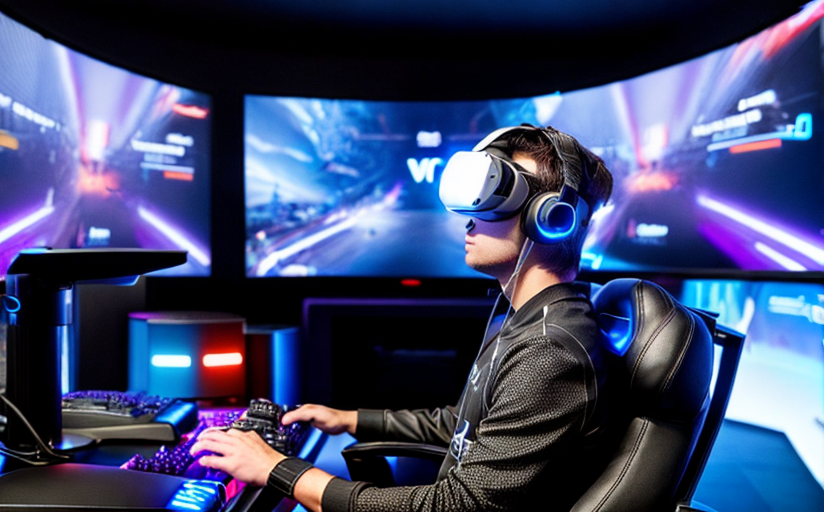The Future and Impact of Virtual Reality in Gaming and eSports
The advent of technology has induced a seismic shift in the landscape of gaming and eSports. Perhaps one of the most radical transformations has been ushered in by the utilization of Virtual Reality (VR). As VR technology continues to evolve, the implications for gaming and eSports are vast and expansive.
Current Role of VR in Gaming and eSports
Presently, VR has already started making massive strides in transforming the way we interact with games. It offers players an immersive experience that redefines gameplay from being a merely visual experience on a screen to being a multi-sensory interaction in a digitally created environment. Popular games such as 'Resident Evil 7' and 'Beat Saber' aptly demonstrate how VR can integrate and elevate player experience.
In eSports, VR is still a nascent technology. Yet, there are tournaments that exclusively use VR games, such as the 'Virtual Athletics League'. Stadiums filled with players physically immersed in the action mark the emergence of a new breed of eSports.
Future Developments in the Field
The future of VR in gaming promises even greater immersion, fidelity, and realism. Advancements in haptic feedback technology will allow players to touch and feel virtual objects, while improved motion tracking will enable more accurate replication of player movements in the virtual world. Artificial Intelligence, coupled with VR, can lead to NPC (Non-Player Characters) that react more realistically, thereby enhancing the gaming experience.
In eSports, VR might revolutionize the spectator experience. By placing spectators virtually within the gaming arena, VR can make eSports spectatorship more engaging and interactive than traditional sports.
Impact on Players, Developers, and the Industry
VR's immersive gameplay offers numerous benefits to players, from heightened entertainment to useful applications in therapeutic rehabilitation and education.
For developers, VR presents a new design scale. It involves unique challenges such as preventing motion sickness and creating intuitive interfaces. Digital arenas also need to be designed differently for VR.
VR's impact on the gaming industry is expected to be colossal, with projections of VR gaming market size exceeding $45 billion by 2025. It provides opportunities for new genres, business models, and sponsorship deals.
Challenges and Opportunities
Challenges with VR include the high cost of VR headsets, the physical space requirements, and the development challenges brought on by the new medium. However, with continued advancements, these obstacles will likely diminish.
There are also immense opportunities. Developing eSports titles exclusively for VR can result in unique gameplay and spectating experiences. VR can enable the integration of eSports into social networks, streaming platforms, and mainstream media in new and exciting ways.
In conclusion, the future of VR in gaming and eSports is undoubtedly promising, ready to reshape the boundaries of entertainment.
















Comments
Leave a Comment